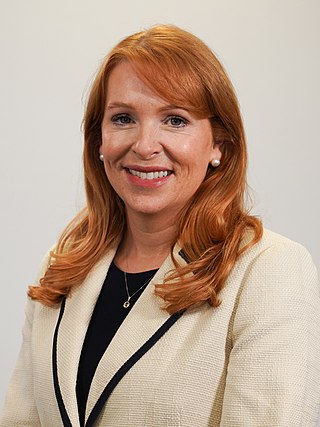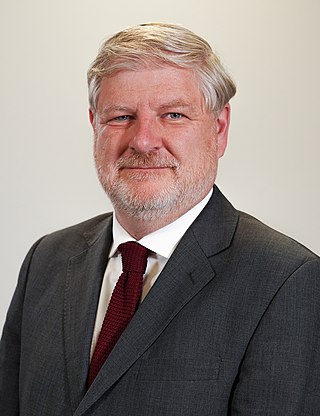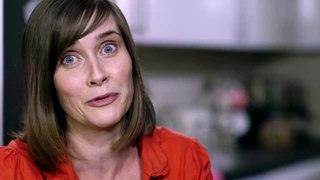Related Research Articles

Scottish independence is the idea of Scotland regaining its independence and once again becoming a sovereign state, independent from the United Kingdom. The term Scottish independence refers to the political movement that is campaigning to bring it about.

Angus Struan Carolus Robertson is a Scottish politician serving as the Cabinet Secretary for the Constitution, External Affairs and Culture since 2021. Formerly Depute Leader of the Scottish National Party (SNP) from 2016 to 2018, he has served as the Member of the Scottish Parliament (MSP) for Edinburgh Central since 2021. Robertson previously served as a Westminster MP for Moray from 2001 to 2017, where he served from 2007 to 2017 as the Leader of the SNP in the House of Commons.

Unionism in Scotland is a political movement which favours the continuation of the political union between Scotland and the other countries of the United Kingdom, and hence is opposed to Scottish independence. Scotland is one of four countries of the United Kingdom which has its own devolved government and Scottish Parliament, as well as representation in the UK Parliament. There are many strands of political Unionism in Scotland, some of which have ties to Unionism and Loyalism in Northern Ireland. The two main political parties in the UK — the Conservatives and Labour — both support Scotland remaining part of the UK.

A devolved English parliament is a proposed institution that would give separate decision-making powers to representatives for voters in England, similar to the representation given by the Senedd, the Scottish Parliament and the Northern Ireland Assembly. A devolved English parliament is an issue in the politics of the United Kingdom.
This is a list of opinion polls for the 2007 Scottish Parliament election. The first figure for each party is for the 1st, first-past-the-post, constituency, vote; the second figure is for the 2nd, proportional representation, regional, vote. The Scottish Greens and the Scottish Socialist Party ran only one constituency candidate each in the 2007 election so constituency values in polls for those parties have little meaning.

A referendum on Scottish independence from the United Kingdom was held in Scotland on 18 September 2014. The referendum question was "Should Scotland be an independent country?", which voters answered with "Yes" or "No". The "No" side won with 2,001,926 (55.3%) voting against independence and 1,617,989 (44.7%) voting in favour. The turnout of 84.6% was the highest recorded for an election or referendum in the United Kingdom since the January 1910 general election, which was held before the introduction of universal suffrage.
Better Together was the successful campaign for a No vote in the 2014 Scottish independence referendum, advocating Scotland to remain a country of the United Kingdom. The organisation was formed in June 2012, operating until winning the vote on the referendum's polling day on 18 September 2014 with 2,001,926 (55.3%) voting against independence and 1,617,989 (44.7%) voting in favour. In June 2014, the campaign adopted a No Thanks branding, in relation to the referendum question.
Events from the year 2014 in Scotland.
This page lists the public opinion polls that were conducted in relation to the 2014 Scottish independence referendum, that was held on 18 September 2014. Overall, polls showed that support for a "No" vote was dominant until the end of August 2014, when support for a "Yes" vote gained momentum and the gap closed significantly, with at least one poll placing the "Yes" vote ahead. In the final week of the campaign, polls showed the "No" vote to be consistently but somewhat narrowly ahead. There were no exit polls although a YouGov post-election poll was published shortly after the polls closed. For the history of the campaign itself see 2014 Scottish independence referendum, Yes Scotland, and Better Together (campaign).

The NATO debate in the Scottish National Party refers to a historical argument within the Scottish National Party (SNP) as to whether or not an independent Scotland should be a member of the North Atlantic Treaty Organization (NATO). The party was opposed to NATO membership from the 1980s until its 2012 conference.

Ashten Regan is a Scottish politician. She has been the Member of the Scottish Parliament (MSP) for Edinburgh Eastern since 2016. Initially elected to parliament for the Scottish National Party (SNP), she defected to the Alba Party. Regan served under First Minister Nicola Sturgeon as the minister for community safety from 2018 until she resigned in 2022 in protest against her government's Gender Recognition Reform bill.

A second referendum on Scotland becoming independent of the United Kingdom (UK) has been proposed by the Scottish Government. An independence referendum was first held on 18 September 2014, with 55% voting "No" to independence. The Scottish Government stated in its white paper for independence that voting Yes was a "once in a generation opportunity to follow a different path, and choose a new and better direction for our nation". Following the "No" vote, the cross party Smith Commission proposed areas that could be devolved to the Scottish Parliament; this led to the passing of the Scotland Act 2016, formalising new devolved policy areas in time for the 2016 Scottish Parliament election campaign.
Opinion polling on Scottish independence is continually being carried out by various organisations. This article concerns the nearly 300 polls carried out since the 2014 Scottish independence referendum. Polling conducted before the referendum can be found here. Polls listed here, except as noted, are by members of the British Polling Council (BPC) and abide by its disclosure rules.

There was a Scottish National Party leadership election to choose the new Depute leader of the Scottish National Party at the SNP's conference on 14–15 October 2016. The SNP's Westminster Group Leader Angus Robertson MP won the election.

A general election was held in the United Kingdom on Thursday 8 June 2017; all 59 seats in Scotland were contested under the first-past-the-post electoral system.
At various dates in the run up to the 2019 general election, various organisations carried out opinion polling to gauge the opinions that voters hold towards political leaders. Results of such polls are displayed in this article. Most of the polling companies listed are members of the British Polling Council (BPC) and abide by its disclosure rules.

Scotland in Union (SIU) is a pro-UK campaign group, based in Scotland, which launched in March 2015 to help keep Scotland within the United Kingdom. Its supporters include members of pro-UK political parties and people with no party affiliation. It is Scotland's largest and most active pro-UK campaign group, with 38,000 signed up supporters.

"The woman who made up her mind" was a political advertisement opposing Scottish independence from the United Kingdom, created by Better Together, the main group opposing independence. The advert aired on Scottish television and ran online during the 2014 referendum campaign. The two-and-a-half-minute advert consists of a monologue by a middle-aged housewife, alone in her kitchen in mid-morning. She begins by lamenting the effects of the referendum debate and her husband's passionate interest in it on her household, then considers the arguments in favour of independence. Expressing scepticism about them, she finally announces she will be voting against it as it is too much of a risk.
At various dates in the run up to the 2024 general election on 4 July 2024, various organisations have carried out opinion polling to gauge the opinions that voters hold towards political leaders. The polling companies listed are members of the British Polling Council (BPC) and abide by its disclosure rules. The date range for opinion polls is from the 2019 general election, held on 12 December, to the eve of the 2024 election.
References
- 1 2 Brooks, Libby (3 February 2019). "Former SNP MP starts Scottish independence polling initiative" – via www.theguardian.com.
- ↑ "Marianne Taylor: The moral case for independence is clear, but it's a hard sell economically". The Herald.
- ↑ "Progress Scotland — the new group plotting a route to independence". www.newstatesman.com.
- ↑ Hjul, Jenny. "JENNY HJUL: Progress Scotland...What will Angus Robertson do if he discovers majority of Scots don't want independence?". The Courier.